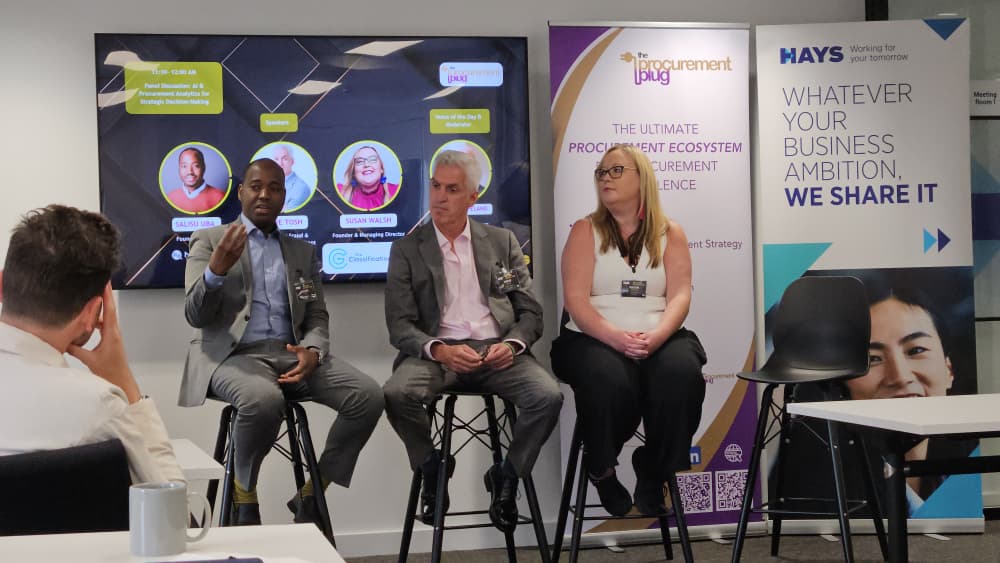Political interference in procurement decisions is a persistent challenge, particularly in the public sector. As procurement professionals, we often find ourselves in situations where external pressures seek to sway decision-making, sometimes at the cost of ethical standards, transparency, and value for money.
While stakeholder engagement is a key part of procurement, undue political influence can erode trust, compromise professional integrity, and ultimately harm public service delivery. The question then arises—how can procurement professionals mitigate this risk while maintaining ethical and moral standards?
I believe the solution lies in a structured approach built on three key pillars:
1️⃣ Awareness: Recognising Political Influence in Procurement
The first step in mitigating political interference is acknowledging that it exists and understanding its potential impact. Political influence can manifest in various ways, such as:
- Unjustified Direct Awards: A procurement officer is pressured to award a contract to a politically connected firm, bypassing competitive tendering processes.
- Specification Manipulation: Tender requirements are subtly tailored to favour a specific bidder, often at the request of influential individuals.
- Bid Evaluation Interference: Evaluation committees may be coerced into adjusting scoring criteria or altering results to ensure a preselected bidder wins.
To combat these risks, procurement professionals must strengthen their ethical awareness through training, ethical procurement frameworks, and whistleblowing protections. Professional bodies such as the Chartered Institute of Procurement & Supply (CIPS) provide ethical guidelines and best practices that procurement professionals can follow to safeguard decision-making.
2️⃣ Risk Assessment: Identifying Vulnerabilities in Procurement Processes
Political influence often operates in the shadows, making it difficult to detect until significant damage has been done. A proactive risk assessment process helps identify vulnerabilities in procurement cycles and establish safeguards.
Key risk assessment strategies include:
- Stakeholder Mapping: Identifying key influencers and understanding their interests helps procurement professionals anticipate undue pressure points.
- Conflict of Interest Declarations: Ensuring all decision-makers declare any affiliations or interests in bidding firms reduces the likelihood of biased decisions.
- Compliance Audits: Regular reviews of procurement decisions can flag inconsistencies and potential external interference.
For example, in some governments, independent procurement review boards are established to oversee high-value tenders. These boards act as an additional layer of scrutiny, reducing the risk of political meddling.
3️⃣ Documentation & Mitigation: Strengthening Procurement Integrity
One of the most effective defences against political influence is transparency. Procurement professionals must ensure that every decision, evaluation, and contract award is thoroughly documented and defensible.
Best practices include:
- Maintaining Procurement Records: Documenting the entire procurement process—decision rationales, evaluation criteria, and communication logs—ensures traceability and accountability.
- Strengthening Legal and Regulatory Frameworks: Procurement policies should clearly outline penalties for undue influence, and organisations should enforce these rules consistently.
- Encouraging Ethical Leadership: Organisational culture plays a significant role. When leadership prioritises ethics, it empowers procurement professionals to stand firm against external pressures.
For example, in the United Kingdom, the Public Contracts Regulations 2015 provide strict guidelines on public procurement, ensuring fairness and transparency. Countries with robust regulatory enforcement see fewer cases of procurement manipulation, as professionals are better protected when resisting political pressure.
What Would I Do Differently?
While procurement professionals can take individual steps to resist political interference, real change requires systemic reforms and institutional support. Here’s what I believe can make a difference:
✅ Strengthening Whistleblower Protections: Encouraging a culture where procurement professionals can report undue influence without fear of retaliation.
✅ Institutionalising Independent Oversight Bodies: Ensuring procurement decisions are reviewed by independent panels to reduce the risk of political manipulation.
✅ Promoting Ethical Procurement Culture: Training and capacity-building to reinforce ethical decision-making across procurement teams.
A Call to Action
Procurement is the backbone of public service delivery. When political influence undermines procurement integrity, it is not just professionals who suffer—it is the public who bear the consequences of inefficiency, corruption, and poor service delivery.
🗣 Have you encountered political interference in procurement? How did you navigate the challenges? Let’s discuss in the comments. 👇
#PublicProcurement #EthicsInProcurement #Integrity #RiskManagement #SupplyChain #ProcurementLeadership #Transparency




